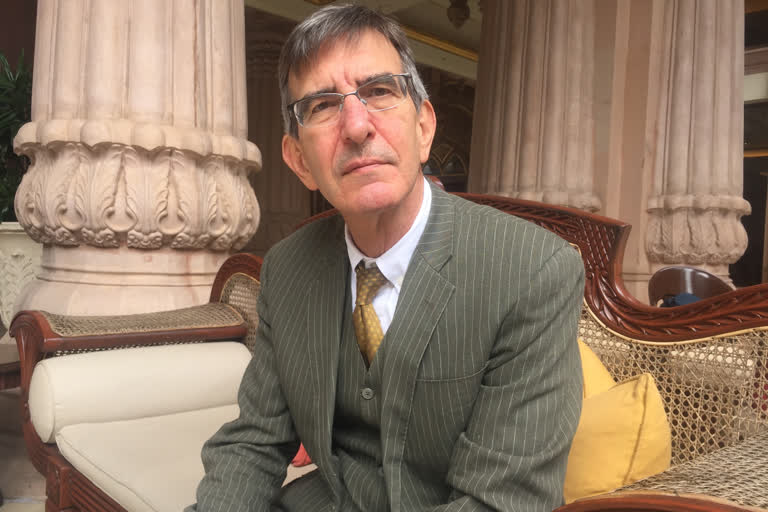Bangalore: The United States resumed its negotiations with the Taliban Saturday, three months after President Donald Trump had called them off. Prominent Amerian foreign policy and nuclear security expert George Perkovich, however, is not pinning his hopes much on a breakthrough in the new round of dialogue. He believes the situation in Afghanistan has hardly changed and either side is unlikely to concede any new ground.
Perkovich, Vice President of the global think tank Carnegie Endowment for International Peace in DC, also says that there is genuine concern on The Hill about the human rights situation in Kashmir, the possibility of an armed conflict escalating in the valley and India-Pakistan tensions sparking off. Speaking to senior journalist Smita Sharma along sidelines of the Carnegie Global Technology Summit in Bengaluru, Perkovich also argued that Pakistani arguments on Kashmir are finding a greater resonance in Washington following the scrapping of Article 370 and reorganisation of the former state by the Modi government. However, Donald Trump has no idea of South Asia or its dynamics and often lies, added Perkovich.
Now that the US has announced the resumption of talks with the Taliban do you see it making any breakthroughs?
My sense is it not talks just for the sake of talks. There was progress that had been made before the Camp David meeting was cancelled. Now it is quite controversial with voices within the US military, within India that say what was about to be agreed was giving too much to the Taliban. But there was some progress despite the controversy. If they are resuming the discussions it is difficult for me to see that there would be a big change from what was rumoured to be kind of the basic package that had been agreed for. Nothing on the ground has changed for the Taliban to make bigger concessions. I do not know what the US would be willing to do more than it had already.
What transpired behind the scenes when Trump invited the Taliban for talks to Camp David and then cancelled it off citing attacks which had taken place previously too?
I do not really know. It has the symptoms or indications of something that has happened in the Trump administration a number of times. Where the President agrees to something or says something seemingly promising because he is imagining a great Television of that that will make him look great. But he is ignorant. He does not understand the details of the situation. So his staff and others over time are trying to alert him that this is complicated, might be controversial, here are the implications of what he might do. He does not pay attention till the last minute and then makes a conclusion that he will look bad on television if he goes forward with it and so he cancels it. So one of the things that happened before the planned meeting at Camp David with representatives of the Taliban is that people were finally getting to Trump and he realised that he was not going to look good . People were saying Taliban are killers and you are inviting them to Camp David without getting that much in return. So it appears that he realised he was not going to look so good so he just cancelled it.
There have been two hearings on Kashmir in the US. Is there a deeper criticism among the Democrats today also in view of the Trump appearance in the Houston rally and Republicans saying PM Modi endorsed him for 2020?
I do not think that President Trump and PM Modi’s kind of bromance in Houston helped India politically in the US. But I do not think it was that huge a deal. My sense is Democratic Representatives are not responding about the situation in Kashmir or expressing their views as some retaliation for Modi’s meeting with Trump. It did not help but it did not cause this. What is causing the concern is genuine sense that this was a big shift regarding Kashmir. It is a volatile issue that has led to conflict and could lead to armed conflict. And Probably that it cannot be resolved unilaterally that seems to be the assertion and preference of the Indian government. It is a genuine concern that this will not solve the problem. They are genuinely concerned about the human rights situation in Kashmir. There is not that much reporting on it also in some way because India is blocking it, makes people conclude it must be really bad. And that the Indian government position is very problematic if they are not allowing reporting. So naturally brings out scepticism among officials and Democrats, in general, tend to be more interested in human rights. That is what is reflected in the questioning of India in the Congressional hearings.
President Trump has said a few things about mediation on Kashmir issue, then changed statements. How serious a concern is the state of India-Pakistan for the US administration?
